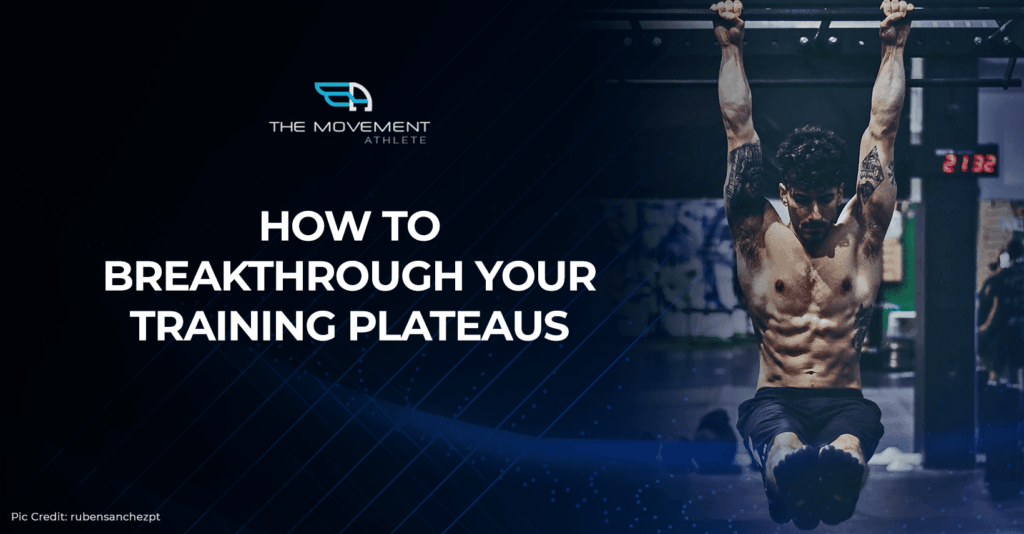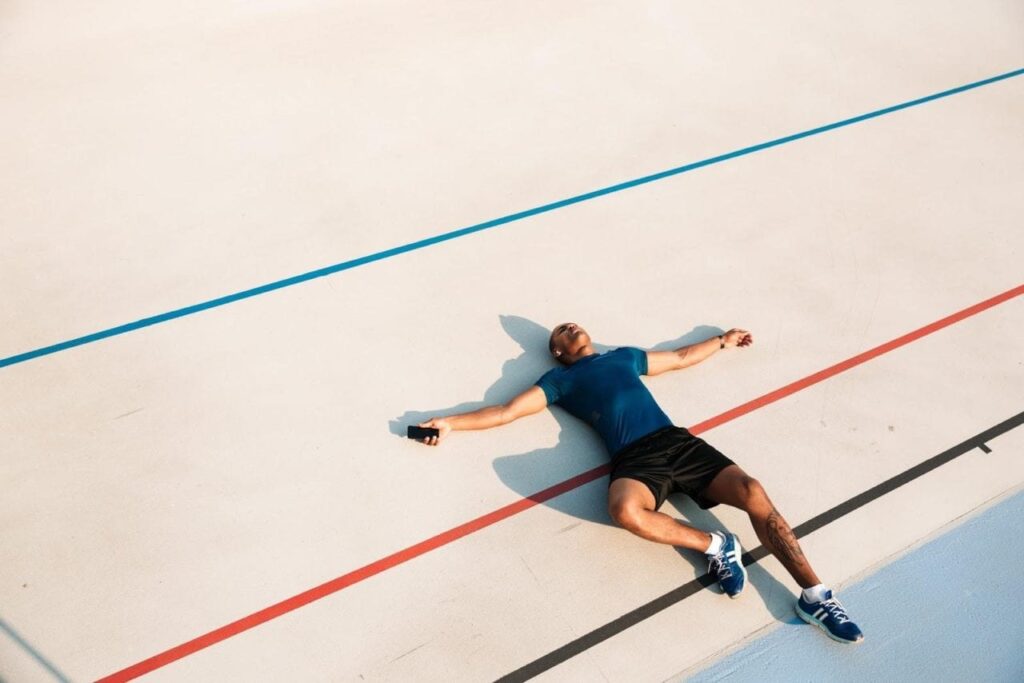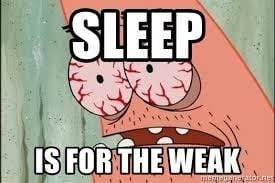

Join the tribe of Movement & Calisthenics Athletes – people just like you that are working with their own body weight to get strength, lose fat build muscle, recover from injuries and live their best lives!

We all have moments where we feel like we are hitting a plateau.
For those who aren’t familiar with the term, a plateau feels like you’re no longer gaining any progress in your training.
It’s something that no one likes, but it’s a natural part of life that we will all experience at some point in time. It’s because our bodies can adapt to the demands we apply to them. We no longer progress because of factors affecting us aren’t met sufficiently enough, which we’ll discuss later in depth.
But whether it is with work, a workout, or the complacency of our daily routine, plateaus can manifest themselves leaving us bored, demotivated, and weak.
Whenever I am feeling such a way, I like to remember the words of Albert Einstein:
“The definition of insanity is doing the same thing over and over again and expecting a different result.”
So what is the result that you want? Is it 25 reps of a dip progression? A promotion? Or maybe just those delightful pillows in the display case of the Crate and Barrel you pass daily. Regardless of the desire, complacency won’t bring you any closer to it.
So let’s look at the possible changes.
1. ☝️ Shift to a positive perspective on the word “plateau.”
To start your journey busting through your plateaus, a piece of advice from Scott Herman of ScottHermanFitness, a credible Youtube fitness educator, provides excellent insight and fresh perspective on how to tackle a plateau, whether it’s about the fitness or any order discipline you want to improve on.
🎥 Here’s his video in this link.
To summarize Scott’s talk, you can also view it positively instead of negatively looking at the word plateau. This is done by looking at your previous progress up until when you experienced the plateau.
“What have you already achieved ever since your training? How much progress have you already made? Where are you now in your journey?”
By looking into these types of questions, you’ll realize that you already made good progress before hitting the plateau! This mindset primes your mind to have a more positive perception and outlook. It will continue to motivate you to progress even further.
Focusing on the plateau itself could have a massive impact on your overall mindset. It makes you focus on the lack of progress, leading to demotivation and eventually giving up on your journey.
Instead, what you need is to focus on what you have achieved. Be grateful that you have made much progress before hitting the plateau.
📌 Busting through the plateau starts in mind. If your start with a negative outlook and perception of a plateau, expect the sense of defeat to creep in. Stay positive and keep on working hard and smart.
2. Make changes in your workout 👊

Photo by Jonathan Borba from Pexels
Now let’s move on with the physical aspects of busting through your plateau.
📌 Progressive Overload
Progressive overload is an essential principle in building strength and muscle. But it could also apply to other aspects like if you want to increase endurance, improve performance, run faster. The principle could even apply to your everyday life.
What’s progressive overload? It states that your body needs progressive additional tension and demands to adapt and achieve the goals you are aiming for. If you need to build strength, apply more resistance to the targeted muscle. If you need mobility, challenge that joint to a wider range of motion.
Your body has the outstanding ability to adapt to whatever stimulus you apply it to. It always strives to make your movement more comfortable and efficient. As you use the triggers, additional resistance, for example, your body adapts by building your muscles and making you stronger so you can lift the resistance easier the next time around.
With progressive overload, you’re looking into applying and manipulating these factors below gradually to promote a good recovery and training ratio that allows for your body’s proper development.
☑️ Exercise Frequency
Frequency refers to how many training sessions you do in a given day, week, or month in total. Training with higher frequency doesn’t always translate to better gains. Training intensity, type of exercise, skill level, and training volume also affect exercise frequency. You need to find the right balance for you. Good thing The Movement Athlete app covers that for you.
☑️ Exercise Intensity
You can also add difficulty to your workout routine by changing the intensity of the exercise. With calisthenics, you can move the higher progression or change your posture of a specific activity to place you at an even more significant mechanical disadvantage.
☑️ Exercise Variation
Your body might be indicating that it is time to work on some different types of movement. Take a look at what your skill and main move options are. Swap one or two out with something fresh and different. Maybe the moves you are working on are not a good match for your body at this time. Embrace that and be open to a change.
☑️ Time
Extending your workout duration could also be manipulated to challenge your body. But ideally, the longer your workout is, the overall intensity of the training is also reduced to minimize any risks of overtraining, overfatigue, and injury risks.
☑️ Exercise Volume
When we talk about exercise volume, we refer to the over amount of reps and sets you have made. When you can only do eight reps each set of push-ups, push yourself to do a bit more by adding 1-3 additional reps per set. Just keep in mind how strenuous the exercise is for you. If you’re only doing three reps of pull-ups, be realistic, and don’t push yourself to add three more reps per set. Also, mind your form when performing each rep—quality over quantity.
In summary, manipulate these factors to keep your body challenged and not get relaxed. But aim for a slight discomfort and not pain. Continue to add difficulty to your workout by changing these factors so that your body keeps on adapting so you can easily break your plateau.
When training with The Movement Athlete, luckily, you won’t have to worry much about playing with these factors as the app does everything already for you through adaptive calisthenics. The app also has a feature that tracks your progress, so you’ll know that you are breaking through your plateaus. You can learn more on The Movement Athlete website.
3. Care for yourself 😍
Exercise is not everything. Your workout is just a third of the formula to achieve a healthy body. You have to mind your recovery through good quality sleep and fuel through proper nutrition.
A plateau is an excellent opportunity to look at your daily habits and listen closely to what your body is telling you. Let’s take a closer look at what your body might be telling you.
Sleep 😴😴😴

Sleep is not for the weak. Not enough sleep makes you weak.
Sleep is a critical factor for your workout gains and your overall health development and everyday functioning. According to research, there is a varying ideal number of hours of sleep for each individual, and there’s no magic number you need to hit. It’s better to aim for at least 7-8 hours of sleep per day for an adult.
The quality of sleep is also important as the duration of sleep. You need an uninterrupted good night slumber in the most comfortable way possible for you. It means that you should let go of your worries and stress for now and relax for your muscles to grow stronger and develop. It’s also essential for your everyday function and workout performance.
Remember that your body does not get stronger during your workout. Your body gets stronger during your rest.
But there would be times that getting the ideal number of sleep seems impossible. With all the other responsibilities in our lives, we just need to listen to your body as well.
Take a nap if needed. You may also take a nap even if you are already sleeping well as 2009 research suggests that there are numerous benefits to it, including added focus, which can massively affect your training.
If you lack sleep, you’ll hit a plateau hard like a car hitting a brick wall at 100mph! You won’t make gains. You won’t perform well in your training. You feel groggy and irritable. What’s even worse is that you might have the risk of deteriorating your progress without proper sleep.
Accept also there would be bad days along the way. We experience a ton in a single day. These factors add up, leaving us tired and exhausted. In this case, take a step back and opt for a good night’s sleep.
📌 Sleep matters. Don’t take it for granted.
Nutrition 😋

Photo by Ella Olsson from Pexels
The saying, “you can’t out-train a bad diet,” is a classic in the fitness industry for a reason: it speaks the truth.
Food acts as fuel for your body. Without it, any workout is pointless. You might not even be able to function well in your daily life if you don’t eat proper food.
📌 For fat loss and muscle gains, caloric deficit and caloric surplus tracking, respectively, need extra attention. You also need to keep in check if you’re getting the right amount of macronutrients and even micronutrients.
But these aren’t the only things that matter with regards to nutrition. Not all calories are equal. The quality of food also plays a huge factor in contributing to your gains. Think of it this way; if you want good progress, you have to eat good food, of course in moderation, depending on your goal.
Take a look at what you are putting into your body, what it is craving, and how you can make adjustments so that you can function at your peak state.
4. Self-reflection 🧐

What things are you doing on a day to day basis? Are they the things that you want to be doing? Is there a why behind each?
Use this plateau as a time to connect intentions with your actions. Why do you show up to work every day? Why do you workout? Sometimes a defined purpose is just the perspective shift we need to bring whole new energy into the things we are already doing.
Answering the what’s and why’s also allows you to motivate yourself even further as you have a definitive direction and purpose behind your actions.
Reflection time, on your own, where you can be truly present at the moment at hand. Go for a walk, take a bath, meditate, or take the time to journal. Constant thought and action, and stimulation can be draining.
Give your mind and body the chance to be. Embrace both precisely as they are. Energy can come from calm moments in the same way that it can come from activity.
Make the changes that feel right for you, reassess, and repeat.
👉 A plateau is a call for change.
Embrace that, fine-tune what works for you, and don’t forget to celebrate both the changes and gains along the way.
What aspect of your life are you currently experiencing a plateau in?
Let us know in the comment section below and if you find this guide useful.